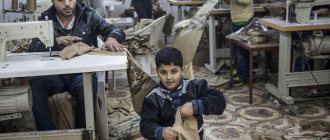In women's colonies there is no such strict hierarchy as in men's colonies: there is no division into clearly defined castes, there are no so-called “concepts”, there is no shame in doing physical labor. Little attention is paid to previous criminal records and the list of “prisons”: what is more important is what kind of person ended up in the cell, what use she can be to others, how generous her relatives are with parcels and gifts.
Regarding conditions and sanitation - depending on your luck. There are exemplary places where there are no interruptions in hot water, fresh food and reasonable medical care. There are others: with a high percentage of suicides due to the huge amount of violence, with rotten food, lack of banal medicines, moral and physical humiliation from management.
Homemade car, crocodile Gena and prison teddy bear
I entered the zone already with a large number of tattoos, which attracted the interest of the prisoners. When they found out that I worked in a tattoo parlor, most prisoners were happy to be in this neighborhood, because many want a prison tattoo. But this is not so easy to do. Now times have changed, and if the prison administration finds out that you hit or got a tattoo, they will send you to a punishment cell. In my colony there were one and a half thousand people - that's about 15-20 barracks, half of which were inhabited by people getting tattoos. But most of them are partachniks (inexperienced tattooists who make partaki - low-quality tattoos. - Ed.).
I made the first two tattoos with a homemade machine. It consisted of a ballpoint pen, electrical tape, a motor from a tape recorder, and a phone charger. A string is usually used as a needle, but we didn’t have one, so a sharpened telephone cable served as a needle. The paint is “burnt”, ordinary burnt rubber mixed with water. Old shoes were burned. I made these tattoos in great secrecy and in the traditions of Russian prison tattooing, which I am very pleased with.
After some time, a man with a significant status among prisoners asked me to give him a tattoo, not Zonov’s, but like they beat outside in tattoo parlors - an angel with a sword. It was the man looking after the barracks, a gangster from the 90s, a rather mature guy. I made him a list of the equipment I needed, and two days later he supplied it. Everything was sterile: several packs of needles, gloves, and so on.
I don’t know how he got hold of (got it. - Ed.) the machine, maybe he lured the administration staff. You can’t do anything through the head of the colony, basically everything is done through the “infantry” - the middle peasants. I don’t need to know how he did it, we call it “unsound interest.” If I need something from outside, I just turn to this guy.
I hid the car for a long time in a hole that my partner and I dug into the floor in a couple of hours. Moreover, at this time 50 people from the barracks were hanging out on the street. If you make a stand, you have the right to ask everyone to leave the room. That is, everyone knew that we were doing something, but no one knew where.
Using a hammer and chisel, we made a hole in the concrete floor of the barracks. It turned out to be a “trigger” - that is, a button - for my tattoo machine. Using a mayonnaise bucket, we made the hole even and cast a concrete plug for it. There was a piece of wood in the cork that you could screw a self-tapping screw into and pull it out. You close the plug, sprinkle sand, earth, and a little water on top - and the concrete sets. The “trigger” was located in one of the detachment’s rooms, and was not visible from the outside at all. Until you start hammering on the floor, you'll never know it's there.
Prison and life behind bars
In 2005, the State Duma of the Russian Federation adopted a law (amendments to the penal system of the Russian Federation), according to which especially dangerous criminals (who have committed serious and especially serious crimes) will now serve their sentences away from the region where they live or committed their act. This decision is due to the fact that in “their” regional prisons the OOR members tried to organize a riot or escape. And if you call a spade a spade, then they simply decided to push the scumbags into the most remote Russian colonies, where there are fewer human rights activists and where no one would interfere with the process of their “re-education.” How do those who are especially dangerous, especially serial killers or pedophiles, fare? The difference with other convicts is significant... Stage
For OO people, the “sweet” life in captivity begins already at the stage. Since it is necessary that the person does not escape under any circumstances, security measures for them are increased. “Status” convicts (such as the Chechen terrorist Salman Raduev) are taken to a pre-trial detention center, where they await a court verdict, mainly by air - by plane. In such cases, the most experienced representatives of the service sit on the sides of the escort. They also take up space in the back. It is not recommended to transport special criminals in Stolypin. Single compartments are a luxury, but paddy wagons are used to transport OO members, especially serial killers. Unofficially, of course, but it happens that they are even put in leg shackles. At the same time, all movements when leaving the paddy wagon must be made by the convict on his haunches, when next to his face a guard shepherd dog, baring its fanged mouth, barks furiously...
The guards have clear orders regarding such criminals: if they try to escape, shoot without hesitation. On several occasions, already in modern Russian history, shots were fired at the henchmen. If the prisoner were a simple prisoner, they would still try to catch up with him, but so...
For example, one serial killer was shot dead right at the station while trying to escape, although it was full of people. Shooting in such cases is strictly prohibited, but once the guard is hit, the winners are not judged...
Pre-trial detention center
Again, a “status” convict is usually imprisoned alone. And nothing particularly interesting happens to him there. For obvious reasons. But this is if employees of the Ministry of Internal Affairs, the prosecutor's office or the Federal Penitentiary Service do not work with him. I don’t know whether to believe it or not, but they say that after such “work” some OOR members begin to especially actively cooperate with the investigation, and some others get into the noose.
But it also happens that dangerous criminals are not deliberately isolated. In St. Petersburg, a maniac suspected of fourteen rapes was placed in “Kresty” in the early 1990s. So, the prosecutor’s office investigator who was in charge of his case asked to place the pervert in a general cell. But not the “wool” one, although the maniac reluctantly cooperated with the investigation. The cellmates spent the whole day educating the rapist about what they would do to him in the zone and how many people he would “serve” per day, diversifying their story with tales with terrible details. As a result, the process of cooperation between the maniac and the investigation quickly improved.
Zone
It is in the colony that the main troubles for the Oorets begin. As already mentioned, serial killers and maniacs, by decision of the State Duma, are now shoved into the most remote zones or colonies for life sentences. These are necessarily “red” zones, where the killers will not have any authority. “Re-education” therefore proceeds without prying eyes.
In zones where convicts are serving life sentences, employees, of course, behind the scenes, try to make killers regret every day that the death penalty has been abolished for them.
Convicts move around the territory of the colony on their haunches, with their mouths open. On occasion and without it, they are beaten, and quite brutally. It is no coincidence that the same notorious Chechen militants who ended up in Russian prisons were very quickly sent to the next world: Salman Raduev (Solikamsk), Ruslan Alikhadzhiev (Lefortovo), Lechi Islamov (Volgograd), Turpal-Ali Atgiriev (Sverdlovsk region ). The same thing happens with maniacs and murderers, only information about their death usually does not get into print. Why do lifers die so often? Yes, because they are given an unbearable life. Here is a colorful example shared by one of the employees of the Federal Penitentiary Service of Russia.
It was in one of the death row colonies. There sat a maniac who brutally killed three girls. Because according to the law, through
After serving 25 years, a lifer can apply for parole; this monster, having served 7 years, seriously hoped to be released. Unlike many, he did not go down, did not go crazy and played sports whenever possible.
Seeing all this, the colony staff (and many of them had small daughters, and they fiercely hated the maniac) decided to “press” the inmate. He walked with them on his haunches so much that he literally howled. He was deprived of his books. For the slightest protest he was beaten in the most painful places for a man.
After only a year of such a life, the 29-year-old maniac looked like a very old man, gray-haired, barely dragging his feet. He no longer thought about girls or about going free.
Cannibal Vacuum Man
In ordinary colonies (strict and special regimes), the “re-education” of maniacs is even easier - here the employees don’t even have to get dirty.
For example, there is a cannibal named Yum-Nyam in one colony in the Northwestern Federal District. His sentence is 25 years. The administration of the colony assigned him to sewerage work. Every day Yum-Nyam stands waist-deep in shit. And he will stand like this for his entire life, unless, of course, he dies before that time.
As for pedophiles, here the employees only warn other prisoners - just don’t go to the point of death, so that there is no prosecutor’s check.
Again, a pedophile once arrived in one of the northern colonies, on whose account were four brutally raped boys. Even none of the decent people began to “have” it (only the “roosters” had a blast with it), but mostly they “used” it with the handle of a mop. And so - for a whole year. The result is infection of the rectum, its removal and still the painful death of the pedophile.
Once a serial killer arrived in one zone. On the one hand, the article on thieves’ concepts is by no means shameful, but on the other hand, swindlers do not respect people who kill just like that, not in extreme circumstances and not for profit.
They did not “lower” the serial number, but made it a “snatch”. Yes, not a simple one, which serves a certain number of people in the household, but a general one - for the entire zone. The endless washing turned his hands into a bloody mess that never healed. Plus - cleaning from morning to evening.
A year and a half later, the killer caught some kind of infection and died quite quickly in the prison hospital.
Another case. It was in a “red” colony. A serial rapist arrived there. It seems like “letting him go” is not according to the rules of that colony. She was very correct and orderly.
And then it was decided to declare a verbal boycott on the rapist. No one said a word to him for three years (including, by the way, the colony staff who supported the boycott). At first the rapist was glad that he would not be a “rooster.” And then he envied the “lowered” ones. After all, people - they cannot do without communication for years.
Apparently, the rapist began to have irreversible mental problems; he constantly said something under his breath and waved his hands. And then there came a period when he began to bang his head against the wall. The maniac was repeatedly placed in a punishment cell, where he also acted strangely, trying to bite through the bunks. In short, no one was surprised when one day he hanged himself.
As one FSIN employee says: those sexual maniacs who are released after being in prison become even angrier - as a result of the humiliation they received from other prisoners.
Therefore, apparently logically, it is better for them not to leave there at all. There are “folk” methods for their “re-education”, since our courts are so humane.
Semyon Schlieman Based on materials from the newspaper “Behind Bars” (No. 6, 2012)
How does a ringer live in the zone?
On my first day in the zone, I was brought to the office of the head of the colony, since I was working in a tattoo studio when I was free. He said that if I got tattoos, I would be in a punishment cell for the rest of my sentence. Then he asked about the desire to work. So I went to work in an art workshop, where I learned to paint in oils. The paintings were then sold in the store, but I had no salary.
In parallel with work, I always got tattoos. Most often, at night, in the psychological relief room, since administration employees rarely enter the barracks at night. But still, one person must sit on the racket. In general, in any barracks there are six or eight people who constantly sit in front of you and, if a cop is coming, warn you. By the way, all tattoos are recorded by the Federal Penitentiary Service in the prisoner’s personal file as special signs.
At one point, one of the “special agents” (informers - editor’s note) told the administration about my hobby. I wasn’t caught, but I was fired from my job and sent to a detention center for five days. After that, I ended up in a non-working barracks, where I spent most of my time.
“I thought that I would have to fight from the first day”: about the life of a maximum security prisoner - first-hand
Photos were borrowed from the website varlamov.ru with the permission of their author, for which we thank him!
There is some kind of dark humor in this - in the “Stops” section, which is about interesting places and attractions, publish a story about life in prison. Well, where else to put it, on the other hand? No one strives to make such a stop in their life’s journey, but many have to, and these are not only villains and bandits. Our interlocutor Alexey (name changed) is not a thief or a murderer, not a rapist or a swindler. A young Russian guy who, as it happens, has been serving a sentence in one of the Russian colonies under strict regime for four years now. He told “Passenger” about how life is behind bars and whether there is any benefit from such a life - by the way, risking his own safety.
Contact with the will , or 15 days for “VKontakte”
Naturally, we are prohibited from conducting correspondence online. If one of the employees finds out about this interview, I will face 15 days in a punishment cell (punishment cell - approx. “Passenger”
) and a serious search in order to take away everything “extra”. After all, we shouldn’t have access to the Internet or mobile communications at all. To make calls you can use a machine, now they are in every barracks - it’s called Zonatelecom. You apply for a card (you can do it virtually from outside, the main thing is to have a PIN code) and call, but only those numbers are available that are indicated in the application, and it must first be certified. Plus letters and dates. You can only use these means, but why when there are phones and smartphones? Of course, the situation with mobile communications in camps across the country is different, but to one degree or another it is available everywhere. And this is not only convenience, but also business.
We are not required to be kept under constant surveillance 24 hours a day; no guards are enough for that. This is possible when kept in cells, but not in camps. But public events - trips to the canteen, divorce, etc. - are held under the control of employees. In addition, they inspect all facilities (workshops, detachments, any place of work) several times a day, plus they regularly conduct inspections, scheduled and at will. So, when using the phone, you need to be alert. Ideally, watch the entrance through the window. In the squads there are special people for this purpose, who “sit on the chip” all day long for cigarettes or something like that. When an employee approaches, you immediately hide your phone - not in your pocket, of course, but somewhere where they won’t be able to find it in case of a search. For this purpose, triggers are prepared (hides - note by “Passenger”
) in advance.
Life in the zone: expectations and reality
It's definitely not like in the movies. I myself thought that I would have to fight from the first day. When I came here, I prepared myself mentally, but it turned out that there was no need. So far I have swung seriously only once, the rest was in sports sparring. Oh, well, I once beat a rooster with a stick, but that’s the point. On the contrary, it’s almost impossible to fight. Yes, it all depends on the situation, but there is a risk of running into a showdown with thieves - for lawlessness. Here, any measures must be justified and approved. When I had to fight, I was sure that the person would not go anywhere to take it out later, everything was fair. And if you know that someone will go to thieves or garbage, it’s better to just calm down. I generally don’t like to resolve conflicts by force, but I admit that sometimes I want to when I’m tired of everything and everyone. If the trash find out about the collision, they will not look into it, but, most likely, will send both of them to a punishment cell, and who needs that? And it’s not even about the conditions in the punishment cell, what difference does it make, 15 days of the entire sentence is nothing. The reason is that this is entered into the file, and many, including me, want to leave on parole, and such records do not help at all.
As for the thieves, they can give you a few breams, or they can seriously beat you up, and that happens. They pull you in for a conversation, and if no sense comes out of the conversation, then they simply hammer you with stools and bed frames to the point of fractures, etc. But this is for serious reasons. Those who take drugs in prohibited ways are at risk - say, through a transfer window, or engage in unauthorized dealings, or gamble and do not pay off debts.
If no sense comes out of the conversation, then they simply beat him with stools and bed frames to the point of fractures.
Concepts, of course, live, but they are needed to maintain internal order, otherwise there will simply be chaos. If actions do not have consequences, then prisoners will begin to expose each other with their actions and complicate their lives. So there are snoops, and roosters (including “printed” ones), and rats - but these categories appeared long before the appearance of concepts and Russian prisons in general. Snoops usually either tend to “stick” to someone, always behave this way in life, or pay for their own stupidity - debts. Roosters are basically rapists, pedophiles, perverts, everything is clear here. And rather than open hatred towards them, let them clean the toilets and sweep the streets. There are those who were unlucky - they “extinguished themselves”, that is, they chimed with the rooster. Or they took a cigarette from him, or shook hands, or touched someone’s penis, or in some other way. Well, it's your own fault, you have to keep an eye on such things. Rats and bitches choose their own path, and this should not be allowed to remain without consequences. Moreover, all this is determined here, in captivity. That is, no one tracks your previous biography when you are free, and in prison you always have a chance to live like a human being (unless you are a pedophile). It's better to keep the rest to yourself. For example, technically you can fuck a rooster, but I believe that the mere desire to fuck another man in the ass is homosexual, so I don’t do that myself.
About the camp authorities
As for how they talk about coming to the camp: right now this is not the case here. You either accept the rules and get comfortable, or, if you deny, you end up in a punishment cell. Although this is nonsense compared to past times. They can, of course, give you bream sometimes, but the employees are also being renewed, the old-school cruel bosses are leaving. In general, the camps in this area were broken down 6-7 years ago. Before this, there was an “acceptance” when they fucked right away so that they understood where they had ended up. But then the situation was different: drugs, booze, tracksuits for everyday wear, everyone gave a damn. With the new government, everything has become stricter in terms of the regime, but at the same time without harshness from the administration.
They address prisoners mostly on a first-name basis, although there are exceptions. Some take this very seriously and are always on friendly terms with those convicted, but these are isolated cases. The authorities (that is, the administration - majors, lieutenant colonels, colonels) are quite arrogant towards the majority of prisoners. And in general they prefer to communicate with prisoners through caretakers, and they often use this for their own purposes. Those of lower rank - key keepers (aka security guards), some squad leaders - behave more simply. This is how things will turn out, with everyone differently - with some it’s just on familiar terms, but with others it’s completely familiar. Here, over time, something like a professional deformation occurs - they become similar to prisoners, only in uniform.
Professional deformation: security guards become like prisoners, only in uniform.
About the red and black zones. Roughly speaking, they differ in that on the Reds the real power is in the hands of the trash, while on the Blacks the order is determined by the thieves. My zone is red, that is, the main thing is to follow the regime or the laws of common sense. Although there are thieves here too, and they have their own weight: they resolve some conflicts between prisoners, monitor the general situation, the game and compliance with unofficial laws and rules. Another thing is that they are all tied up with garbage and, of necessity, solve problems together, because both of them want to live in comfort.
About the camp hierarchy
At each facility in the zone there is a responsible convict and a responsible employee. Formally, such convicts (goats, caretakers, buggers) are not endowed with power, but in fact they have both privileges and power. They are closer to the staff than others, and often communicate with the head of the colony and his deputies. In addition to bonuses, they have responsibilities and responsibilities, including financial ones. Thus, all repairs are carried out at the expense of convicts; the administration is not inclined to spend money on this. There were many scandals associated with these things, I won’t go into details... And how the goat/supply manager/hillock will organize the work process and financial flow is his concern. As is the situation at the facility. I myself, although not a goat, invested in repairs at my work. You just have to do something, but you do something for yourself, for a more comfortable existence. For example, I perform in a club, play the guitar, we have a full-fledged band here, we have all the instruments, but where would these instruments and equipment come from? We brought everything ourselves or those who worked here before. Some from home, some bought by friends or relatives. And if nothing is repaired or brought in, then the administration will definitely notice. And he will either directly point this out to the caretaker, or simply remove him and install another one.
Day after day
A typical day depends on whether you are working or not. If you sit in a detachment all day, there is not much variety: you go outside for checks, visit the canteen, sometimes the bathhouse, the library or the gym. The rest of the time - reading, sleeping, watching TV, sorting things out, playing games, hanging out on the Internet, whatever. I work, so I’m not in the squad that much, mostly in the morning and evening. I live under easy living conditions, sleep on a single-tier shkonar and not in a huge section, but in a small cubicle with a TV. At 6 a.m., the whole squad is already standing on the street - some sort of exercise, or morning formation. Then the usual morning chores - wash, go to breakfast or cook something for yourself in the food room (“kishark”). Then it’s either divorce and work, or a morning check. My job is not dusty, I am in the voluntary fire department. Sometimes there are training alarms, sometimes there are repairs, but mostly I go about my business: reading, sports, chess, etc. Plus - lunch and another check. In the evening, in the detachment you can watch TV (I didn’t do this in the wild, but here it somehow happens naturally), but it’s better to watch something from a flash drive, if you have one. If I don’t go to work on a shift, I spend time at the club: rehearsals or anything else: books, sports, coffee, stupid things. The choice is not that great.
Holidays are celebrated in the zone, but not in a very diverse manner. On your birthday - chifir, tea, coffee and sweets. On New Year's Eve they usually postpone curfew, you can sit for up to an hour or two and make salads. Everything is almost as usual, only without alcohol and adventures, so there’s nothing to talk about.
Remarkable events are usually someone's failures. Just yesterday someone hanged himself because of debts.
There are incidents, but I don’t remember anything good. Remarkable events are usually someone's failures. Just yesterday someone hanged himself because of debts. This happens, in my memory they have already been hanged a couple of times, all because of debts, usually gambling. People sit down to play without having money to pay, but the excitement takes its toll. We jumped from a third-floor window twice (there is simply no higher one), but without a fatal outcome - we simply broke. One because of debts, the other, it seems, just had a leak. One died of stomach cancer; he was taken out of the zone just a few hours before his death. Before that, they took me out for treatment, but they treated something wrong. Well, little by little, it happens that goats get into trouble, this is also interesting, but only if you stew in this mess. Garbage also ends up in such situations; key holders have been caught carrying and using drugs, and reselling confiscated phones. The bosses get bigger, their own security is hunting for them. For example, we got into trouble with the removal of construction materials and fraud with telephone shipments. And the warden may be arrested, I think. There is a reason for anyone. Sometimes convicts with drugs also shoot themselves. Usually they get caught when they share it with someone - everything is as if they were free.
Categories of carers
Since this is a strict regime, they are imprisoned here mainly for selling drugs and murders (intentional and not). 10-15 percent are the remaining articles, there are even a few bribe takers. I’m not sure about typical categories, but I’ll try to highlight a few.
Blue warrior - there are enough of them, these are those who killed someone in a fight or something like that in the blue shop. Nothing interesting; many people in our country can fall into this category sooner or later.
Old bandit - those who have been in prison for 10-20 years, or maybe not so long ago, but for typical crimes of the nineties and 2000s - murders, banditry, possession of weapons, kidnappings, etc. It's interesting to talk to many of them. In general, you somehow expect that a bandit can be immediately distinguished, but in reality this is not the case. Ordinary people, often even intelligent ones.
An ordinary Tajik - some for robbery or murder, but mostly for manipulation with heroin, this is their topic. Everyone, as a rule, did not know anything, they were asked to keep them or take them, and other nonsense.
It's best to be in prison for those who have been in prison since they were very young and don't know any other life.
Pensioners - old people are also sitting, they are trying to shove them together in one group, like a home for the elderly with disabilities.
Drug addicts and hucksters can be roughly divided into “old-school heroin addicts” and “pepsicole new agers”, well, that’s true, it’s easy to laugh. There are many who are imprisoned for murder, but if they had not been imprisoned, they would someday be imprisoned for drugs.
But - I repeat - in general, your article does not mean anything for life here (if it is not rape). People are all different, and here everyone behaves differently, too, which is why it is customary to look at actions, and not at the past.
It’s best to be in prison for those who have been in prison since they were very young and don’t really know much about any other life. There's really nothing to compare it with. They develop all the necessary qualities for a successful life in prison - their own special morality, in which the one who achieves his goal by any means is at his best. And if we talk about character, it would be best for a calm person who understands that there is no point in rushing anywhere. People who are too cheerful and sociable can quickly find friends, but they can end up in an uncomfortable position - saying too much, being seduced by provocation. Some people are too nervous and worry, and it’s especially hard for them in the zone. Others see their emotions and add fuel to the fire, teasing them, purely for fun. But it is seriously difficult to communicate with such sufferers, because they are trying to explain all their worries to you, but who needs that? Everyone here has their own problems. Aggressive characters will also not benefit from their character; conflicts have consequences. It is best to stay calm and act according to the situation, not to hope for a miracle, so as not to get upset. You certainly shouldn’t think about justice; you shouldn’t look for it in prison. If you seek the truth in prison, you will quickly be imprisoned.
What are the prisoners talking about?
Everyone is talking about the same thing - who is interested in what, and the news of the zone, of course, is discussed. As for feni, I’m not good at it, somehow I can live normally without it. So all the most common things come to mind: shkonka, shlenka, dalnyak, office, rat. Fuck knows, I’m not too interested in this, and there’s no strong need. For those who are interested, I recommend finding a dictionary, there are some that I have read myself. I remember being surprised at the existence of a verb that means “to jump out of a car while moving,” I don’t remember the word itself. Previously, it was truly a separate language. Here’s one more observation: already during my sentence, I often came across the word “shkvar” or “shkvarit” on the Internet, but in the zone or in the pre-trial detention center I never heard it at all, literally zero times. We use the word “quench” here. If something is extinguished, then no one except the roosters can touch this item, this is understandable.
I have never heard the words “shkvar” or “shkvar” in the zone or in the pre-trial detention center.
Another stereotype about prison life is tattoos. Yes, it is. They hit, and they hit everything, it all depends on desire and skills. As for themes and plots - somewhere it may be different, but with us - do what you want, within reason. The application technique is the same as in the wild, only the machines are homemade. It’s not difficult to do, I can assemble it myself without any problems: a motor (from a drive, for example), a body from a regular pen, a frame made of wood, aluminum or anything else, a string, a power supply or phone charger, an adjustable resistor (optional), a pair of rubber bands, glue . Nowadays all this is not difficult to collect even in the zone. Someone hits on the prison theme: rings, gaming chaos, icons. I have seen both SS and swastikas from those who previously “denied” (in my opinion, not the best idea for a tattoo), all sorts of inscriptions “got mit uns”, “only God can judge me” - these are all classics. Someone hits whatever comes to mind - as if in freedom.
Prison has everything - truth or myth?
You can often hear that money, drugs, and alcohol are quite accessible in the zone. In general, this is true, again depending on where. Money is not a problem now, before you had to drag it in and hide it, but now all payments are electronic - you open a Qiwi wallet and that’s it. If you have the Internet, you translate it yourself; if not, you call home and ask for it to be translated. There are also a lot of sharpening points, they need to be cut with something, naturally they get kicked off, but it’s not like there’s a direct hunt for them, it seems like prisoners don’t cut each other. They make their own alcohol, they make mash, they make moonshine, I don’t do that, it’s too troublesome, and even if they find it, they’ll have to go to the punishment cell, and I don’t want to drink that much. It’s not that there are drugs, but rather they exist. Sometimes someone gets into trouble with them, sometimes with hashish, sometimes with heroin. Not very often, these are personal initiatives, and they don’t always add time for this, although this does happen. But the risk is still not worth it. I had a chance to indulge during the term - several times with candies with THC from California, once I smoked garika and once I ate several nutmegs. But I don’t strive for this, and the last time was a long time ago. This is not at all the same as in the wild. The environment here is, to put it mildly, dark and depressing, and when you're tipsy, paranoia and all that prevails. Well, to hell with it, I didn’t get caught and that’s good.
How time has changed me
I have more time. I spend it on sports, self-development, reading. Plus I box, learn languages, study music, even juggle a little, so I learned something, this is definitely a positive side. In terms of spiritual changes, it’s hard to say. Maybe I've become calmer. Perhaps I now care less about the opinions of others. It seems like I know what I want from life, and I have some plans, but it will all be clear when I’m free. He's probably become more patient. But it’s like with appearance - when you see yourself in the mirror every day, it’s not so easy to notice how you have changed over several years, so I see myself and my thoughts every day, and it’s not for me to judge how I have changed or not.
And the fact that correctional colonies do not correct anyone is a fact, in our country nothing is being done for this, this is purely punishment. Everything ultimately depends on you. If you want to change your life, then you will correct in yourself what you consider necessary, and if you can only complain about circumstances, then nothing will help you.
Did you like this material? We have a lot more interesting things on “Passenger”! You can see the best articles for 2018 here, and to follow new publications, subscribe to the VKontakte and Facebook communities of the magazine, scroll through our Instagram page or watch the Telegram channel.
What do they ask you to fill in the zone?
There was a camp supervisor in our zone, and until he gives the go-ahead for the criminal tattoo, I won’t hit anyone with it. He told me: “Get patterns and all sorts of nonsense as much as you want, but if someone wants a prison tattoo, send it to us first.” In general, 70% of all prisoners want artistic tattoos and only 30% want prison tattoos. From the prison ones, they most often asked to fill stars, animal grins, churches, and domes. An artistic tattoo is, for example, in the Mexican Chicano style: a girl with a gun, patterns, wolves, tigers.
They can ask for a tattoo only if you got something status-worthy like stars on your shoulders. If you don’t match the tattoo, they may tell you to interrupt or erase it. But no one will put you down or beat you up. We had one guy who worked in the canteen, that is, he was a volunteer and collaborated with the authorities, then he snuck around for a long time and secretly gained stars for himself. The thieves saw his tattoo, brought him to me and asked me to kill him. He was not brought in by force, but he understood that he had no choice. I refused to work with him and told him to interrupt where they were filling. As a result, clouds were pinned on top of the stars.
Taking money for tattoos is not common practice, so in places not so remote they pay for tattoos in cigarettes and tea. It used to be that they brought me five cartons of cigarettes for work, and that’s about 5 thousand rubles - the price is like a free one. But I myself have never asked anyone to bring me anything - this is not accepted, selling in prison is not welcomed, everything there is on a fraternal, friendly wave.
Who is considered slack in women's areas?
There are outcasts in women's colonies, as well as in men's colonies, but the attitude towards them is rather disgusting rather than aggressive. With one exception: they categorically do not like child killers and arrange for them to be “dark” at the first opportunity. Therefore, separate cells have been prepared for these ladies with those convicted under the same articles. They treat long-time drug addicts and heroin addicts with contempt - it is believed that they will sell anyone for a cigarette or a pinch of tea.
Women diagnosed with human viral immunodeficiency, patients with sexually transmitted diseases, and oncology are avoided. Oddly enough, they do not tolerate lazy people - after all, the entire camera team depends on the development of production standards, and everyone deserves punishment. Therefore, you won’t be able to give up work completely.
Read more about the omitted ones here.
We have prepared a lot of materials about prisons:
- The most terrible prisons in the Russian Federation.
- Methods of transferring money to a prisoner in a colony.
- Resocialization of persons released from prison.
- Is a certificate of release from prison a document and identification document?
- Rules and features of revocation of probation.
- Details about the guardhouse.
- Life imprisonment in Russia.
- How to get a divorce if your husband is in prison?
- Disbat Mulino.
- The concept and features of conditional imprisonment.
Russian prison tattoo is a separate form of art
Russian prison tattoo is a separate form of art. A bunch of different ringers worked all over the Soviet Union, and, despite the not very high-quality workmanship in some places, everyone had the same handwriting. The old meanings of tattoos remain today. For example, I have repeatedly beaten a hussar's shoulder strap - an epaulette, which means that a person is incorrigible. There was also a ship, which is similar in meaning to a church tattoo. The number of sails on it is the number of years in prison, and the number of masts is the number of sailors. But due to the fact that the pioneers are kept separate from the more experienced ones, tattoos in prison have lost their former meaning and status.
Popular prison tattoos in Soviet times and their meanings
THE NUMBER OF DOMES ON A CHURCH is the number of walkers. If there is a cross on the dome, it means the prisoner served his full sentence. No cross - still sitting or escaped
CROSS OVER THE GRAVE - grief for deceased parents
STRAIGHT WHITE CROSS ON A BLACK BACKGROUND - a prisoner passed through the “Crosses”, St. Petersburg prison
SKULL AND CROSS BONES ON THE SHOULDERS - burglar
OCTAGONAL STARS - originally two octagonal stars, located symmetrically on both sides under the collarbones, were a symbol of a thief-authority, a professional criminal
STARS ON KNEES - “I won’t kneel before the cops”
THE INVERTED PEAK SIGN on the ring finger symbolizes a conviction for hooliganism
IMAGES OF SAINTS AND ANGELS, which are usually tattooed on the back or chest, mean adherence to thieves' concepts
A WHITE SAILBOAT means a desire for freedom or that the prisoner is going to escape or has already tried
A DAGGER piercing the neck indicates that the prisoner killed someone in prison
ANIMAL GRIN - the owner of such a tattoo “shows his teeth” to the system. “He bared his teeth at the Soviet regime”
A ROSE ON THE CHEST means that the prisoner celebrated his 18th birthday in prison. Tulip - 16th anniversary
THE GIENN ON THE FOREARM is a common symbol of drug addicts.
A TATTOO ON THE FACE OR ON THE BUTT is a sign of drooping
EYES ON THE BUTTOCKS are a sign of a passive homosexual (hence the famous “I’ll put an eye on your ass and make you blink”)
"KOT" means "native prison inmate"
A NAKED WOMAN TWISTED WITH A SNAKE is stabbed by rapists
A BROKEN CHAIN NEAR THE SHACKLES indicates that the prisoner has escaped
A SPIDER IN THE WEB is a sign that the owner of the tattoo is a drug addict
A NAKED WOMAN BURNING ON A CROSS symbolizes a conviction for the murder of a woman (often revenge on the woman who betrayed her). The number of logs on the fire under the victim represents the number of years of the sentence
LIGHTHOUSE stands for the desire for freedom
HANDCUFFS ON EACH WRIST indicate that he is sentenced to a long term, convict
CONSULTATION: Alexander Sidorov, journalist, author of the books “Great Battles of the Criminal World. History of professional crime in Soviet Russia", "Thieves against bitches. The true story of the brotherhood of thieves" and others
It's easy to go to jail
I have had a passion for drawing since childhood. In my free time I always drew. Both pencils and watercolors. He started getting tattoos at the age of 14. First with a homemade machine, then with normal equipment in an apartment in Saratov, and at the age of 17 I went to work in a studio in Moscow.
I never had problems with the law, I was not a punk, as a child I loved to skateboard and went to punk rock concerts. I even played bass in a band with friends. I worked in a tattoo studio in Moscow for a little less than a year, because in April 2013 I was “closed” in a pre-trial detention center.
I was in the wrong place at the wrong time. I came to a friend’s house to play Sonya, and he asked me to go with him to a guy who owed his friend 300 thousand rubles. Everything was harmless, no one was going to rob anyone. We met and the conversation went rather rudely. No one beat the debtor, he was only given two slaps in the face because he was deceiving and hiding. The next day, the guy wrote a statement saying that they were extorting money from him, and they took the money that he had with him. And that evening my friend had a traumatic pistol on his belt, but he didn’t threaten them, didn’t even pull them out. I don’t know whether his friend took money from him that evening, I didn’t participate in the conversation - it’s not my duty. As a result, a criminal case was opened.
in a glass jar from stew.
Initially there were no complaints against me, but in Russia things get done easily. There was one statement, and then, under the dictation of the police, another appeared. Initially, the gun was simply “hanging”, and then it turned out that they were “threatened.” It turns out that they gave the debtor not a slap in the face, but “they hit him with a fist, and he felt severe pain.” I became an accomplice to the crime, and my friend and I received five and a half years each, and were also required to pay the victim 35 thousand rubles. My friend partially admitted his guilt, but I did not. If I had admitted, I would have received less, but I was principled.
I am a fairly cheerful person, and the sentence was not the end of my life. But the parents were, to put it mildly, in *** (shock). From Moscow, I periodically called my mother and told her that everything was fine with me: I worked in a tattoo parlor, I rented an apartment, I was dating a girl, and then at one fine moment I called my father from the pre-trial detention center and said that I had been imprisoned.
A lot of things surprised me in the pre-trial detention center. For example, prison ingenuity. I never thought that potatoes could be fried in a glass stew jar. It's simple: you pour vegetable oil into it, put in a boiler, and you get a mini deep fryer. I also know three ways to light a light from a light bulb. You soap a waffle towel with laundry soap, wet it a little and stick it on a light bulb. After two minutes it begins to smolder, and you can light it from the coal. Or you can put a paper bag on the light bulb, which will start smoking after three minutes. You can also create fire using toilet paper. You screw it onto the light bulb, wait until it starts smoking, and then pull it off sharply. While it flies to the floor, it can catch fire.
Orders in a modern prison
After the pre-trial detention center, I was in a general regime colony and lived in a barracks. From the outside it is a two- or three-story brick building. As a rule, one detachment lives on a floor (from 50 to 150 people). There are several rooms along the long corridor. First there is a food room, where there is a refrigerator, a table and a kettle, then an educational room, where there is a TV and lectures are held from time to time. Officially, the TV works according to a schedule, but in fact it works around the clock, except at night. What we watch is decided by the administration. Usually Rossiya-24 works there. But it was not difficult for us to find a cable, build an antenna from four wires and install our own TV in the barracks. We often bought them with Wi-Fi so we could watch movies from the Internet.
The next room is for psychological relief, where there is a stereo system, an aquarium, chess, and backgammon. Further along the corridor there is a toilet, washbasins and a sleeping area in which at least 50 people live on two-story bunks.
Typically, an employee enters the barracks once every one and a half to two hours and once at night. There are no guards, unless, of course, people who are prone to escape live in the barracks. Officially you can’t leave the barracks, but in reality you just have to be careful. If an administration officer catches you in a barracks where you do not live, they will send you to a detention center. The search in the barracks occurs on schedule once a month. In fact, it can happen at any moment. If they find a phone in your pocket, you go to the isolation ward. If a phone is found in a barracks and it is unclear whose it is, then nothing will happen to anyone.
What's happening in the colonies?
Human rights activists are sounding the alarm: despite seemingly strict control and calls for the introduction of “transparency” in the affairs of prisoners, barbaric methods continue to be used in some colonies to maintain order and keep a large mass of people in line. Moreover, women suffer no less than men.
The most common torture and abuse of women prisoners in modern Russia are as follows.
- Cold punishment cell. The guilty woman is sent to a punishment cell. This is a cold and very small room, in which there is often not even a stool, let alone a bed. Women are deprived of food and hygiene items; when trying to sleep, they are woken up by sound signals or kicks; they are raped or beaten with batons or tarpaulin boots.
- Torture with an electric shocker. Electric current causes noticeable pain, but leaves no marks. This is what the colony employees take advantage of. Moreover, they bring the stun gun to the most sensitive female places:
- Genital organs.
- Nipples.
- Face.
- Tied to bed. This method is used for violent prisoners or women who refuse to eat. They are tied to the beds in the shape of a “star” - with their arms and legs stretched out in different directions. Ordinary ropes are used, which cut into the skin and not only cause suffering, but also leave poorly healing marks. This torture lasts for hours: women are not allowed to get up even to go to the toilet.
- Water torture. Water is used quite often. This is dousing in the cold. The victim is not allowed to warm up, is sent back to the cold chamber, and after a few hours is doused again. Heat in a container. A small basin is enough, into which liquid is poured and the victim’s face is dipped over and over again. When she starts to choke, they pull her out, let her breathe, and then dip her in again.
- Torture by insomnia. The convict is placed in solitary confinement and is not allowed to sleep. The light in the cell is constantly on, and the guard looks through the door peephole from time to time, and if the woman has her eyes closed at that moment, she is rewarded with pokes or a blow with a baton. The case often ends in fainting.










